Did Ivan the Terrible really kill his son?
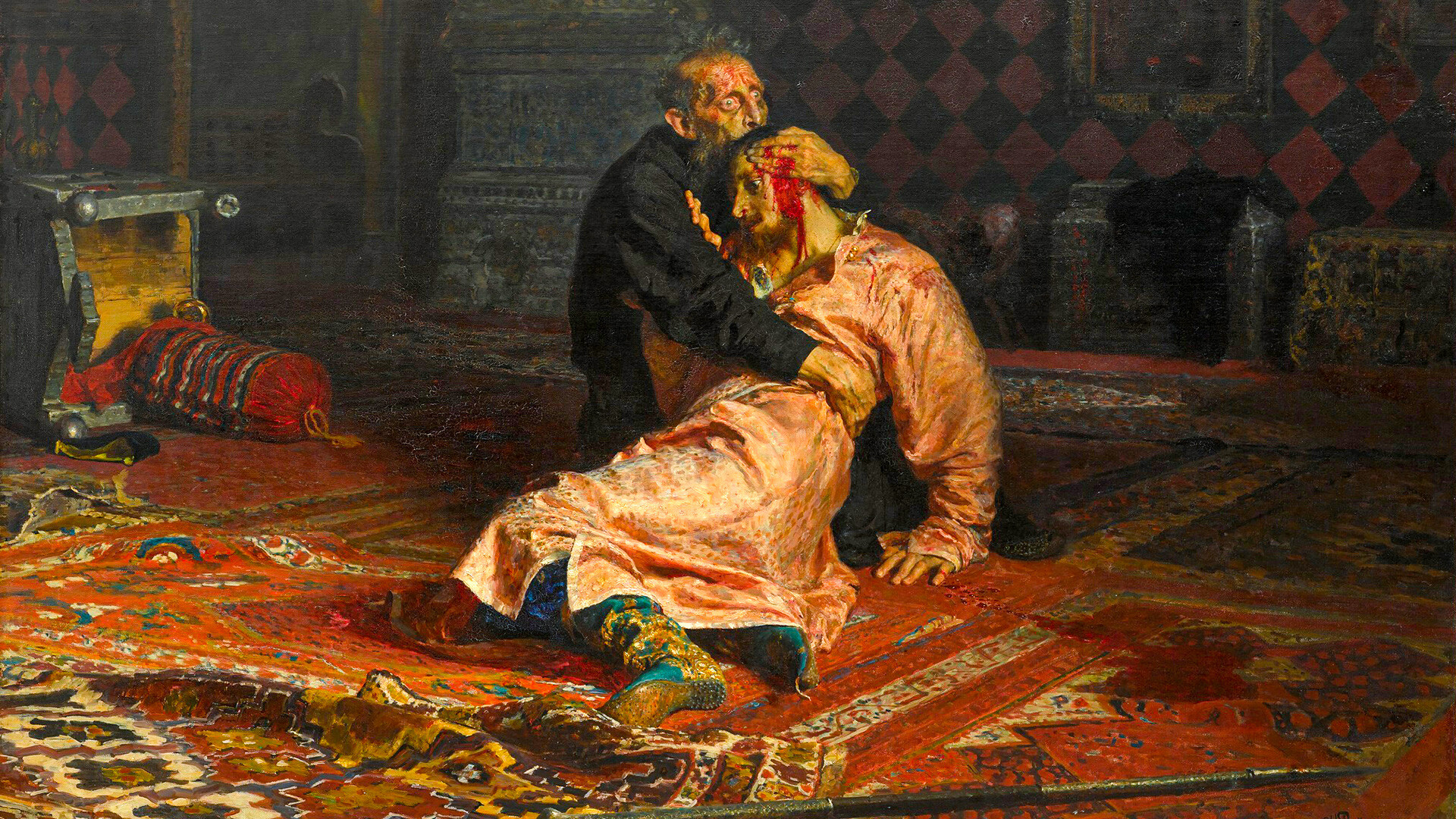
In 1963, Soviet experts studied the remains of Ivan the Terrible and his son Ivan Ivanovich, who died in November 1581. Experts wanted to find out whether Tsarevich Ivan really died from a blow to the head. The experts’ efforts, however, proved fruitless as the son’s skull had been eroded by groundwater.
Another version of his death says that the young Ivan had been poisoned, and that the legend of the murder at the hands of his father had been invented by the Tsar’s enemies. However, once again, it was not possible to confirm or deny this version on the basis of the study. Yes, arsenic and mercury were indeed found in the young man’s remains, but in small quantities. This could be explained by the use of medication common at that time, and not necessarily due to poisoning. Or perhaps the residue from the poisons had already dissipated.
To answer the question of what happened between Ivan and his son in November 1581, we must turn to written sources.
“Terminally ill”
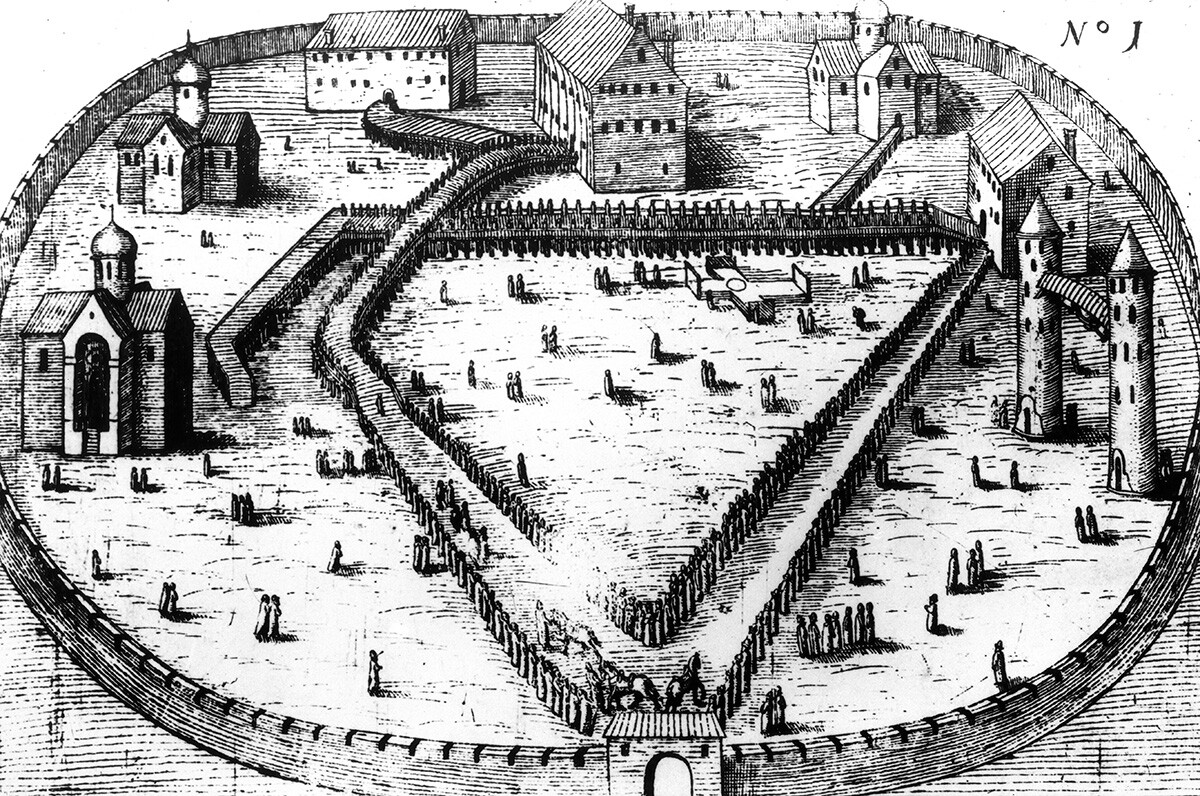 A picture of Alexandrov Sloboda, tsar's residence outside Moscow
A picture of Alexandrov Sloboda, tsar's residence outside Moscow
In November 1581, Tsar Ivan wrote to Nikita Romanovich Zakharyin-Yuryev, one of his leading military commanders, and asked him to come urgently to Alexandrov Sloboda, his residence near Moscow. "Ivan, the son, earlier became unwell and is now terminally ill," wrote Tsar Ivan.
As many as six different historical sources mention that in November 1581 Tsarevich Ivan died in Alexandrov Sloboda. Ivan Timofeev, a contemporary of the events and a clerk close to the court, wrote: "Some say that his life was extinguished by the blow of his father's hand because he wanted to keep his father from some disreputable deed". Other sources also repeat that the son died through his father's fault and from his staff.
It is known from many sources that the staff was Tsar Ivan's favorite weapon. David Belsky, a contemporary, even wrote about the Tsar's quarrels with his son: they were frequent, and Ivan repeatedly beat the heir with his heavy stick. The story of the alleged murder of his son is told in the most detail by Antonio Possevino, an envoy of the Pope, in his "Notes on Muscovy".
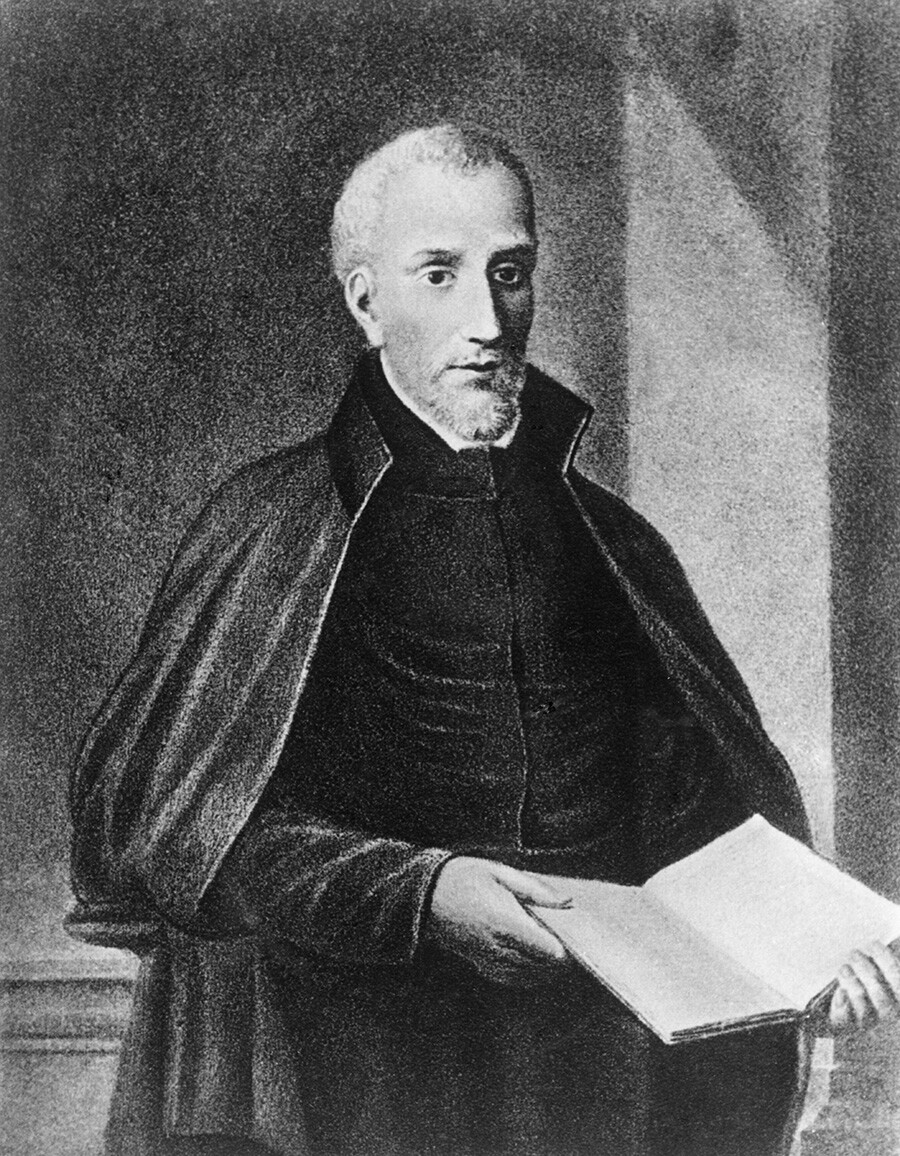 Antonio Possevino
Antonio Possevino
In February 1582, Possevino visited Moscow where he was received by the Tsar. At that moment, the Tsar and the entire court were mourning for Tsarevich Ivan. Here is the version that Possevino, who was told about the terrible event by his Catholic friends in Moscow.
"The third wife of Ivan's son once lay on a bench, dressed in her undergarments, because she was pregnant and did not think that someone would enter her rooms. Suddenly she was visited by the Tsar of Moscow himself. She immediately rose to meet him, but it was impossible to calm him down [appearing before the Tsar in underwear was unthinkable at the time – Ed.]. The Tsar struck her on the face, and then beat her so badly with his staff, which he had with him, that the next night she threw the child out.
“At that time his son Ivan ran to his father and begged him not to beat his wife, but by doing so he only drew his father's anger and blows upon himself. He was severely wounded in the head, almost in the temple, with the same staff. Before this, in anger at his father, the son reproached him in the following words: ‘You imprisoned my first wife in a monastery for no reason, did the same to my second wife, and now you are beating the third wife to destroy the son she is carrying in her womb.’ Having wounded his son, the father immediately gave himself up to deep grief and immediately summoned from Moscow the physicians and Andrei Shchelkalov with Nikita Romanovich in order to have everything at hand. On the fifth day his son died and was carried to Moscow in the midst of universal grief."
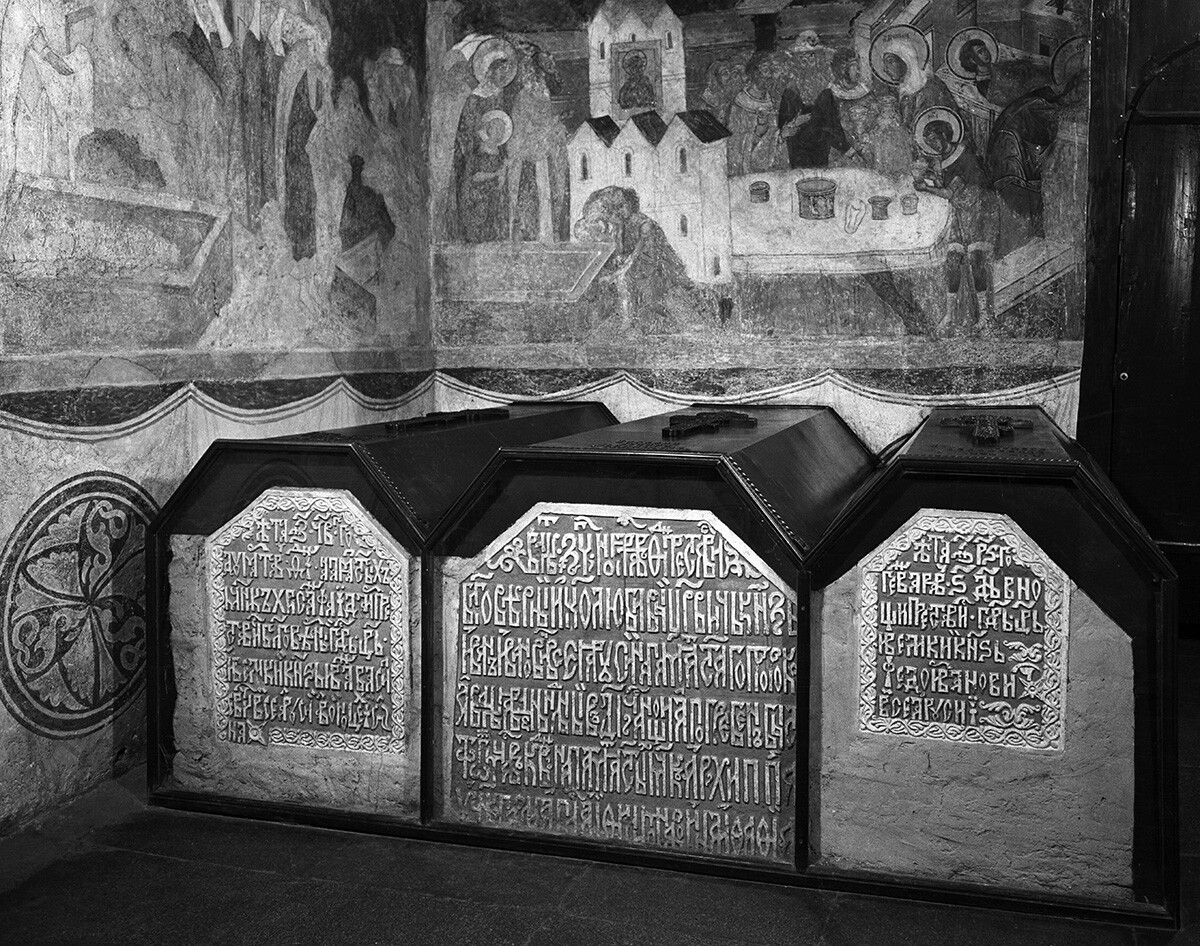 Tombstones of Ivan the Terrible and his sons Fedor and Ivan in the Archangel Cathedral of the Moscow Kremlin
Tombstones of Ivan the Terrible and his sons Fedor and Ivan in the Archangel Cathedral of the Moscow Kremlin
It is believed that the quarrel took place on November 14, and Ivan Ivanovich died on November 19, 1581. Antonio Possevino wrote his "Notes on Muscovy" in Europe after his return from Russia and published them in 1586.
The tsar’s repentance
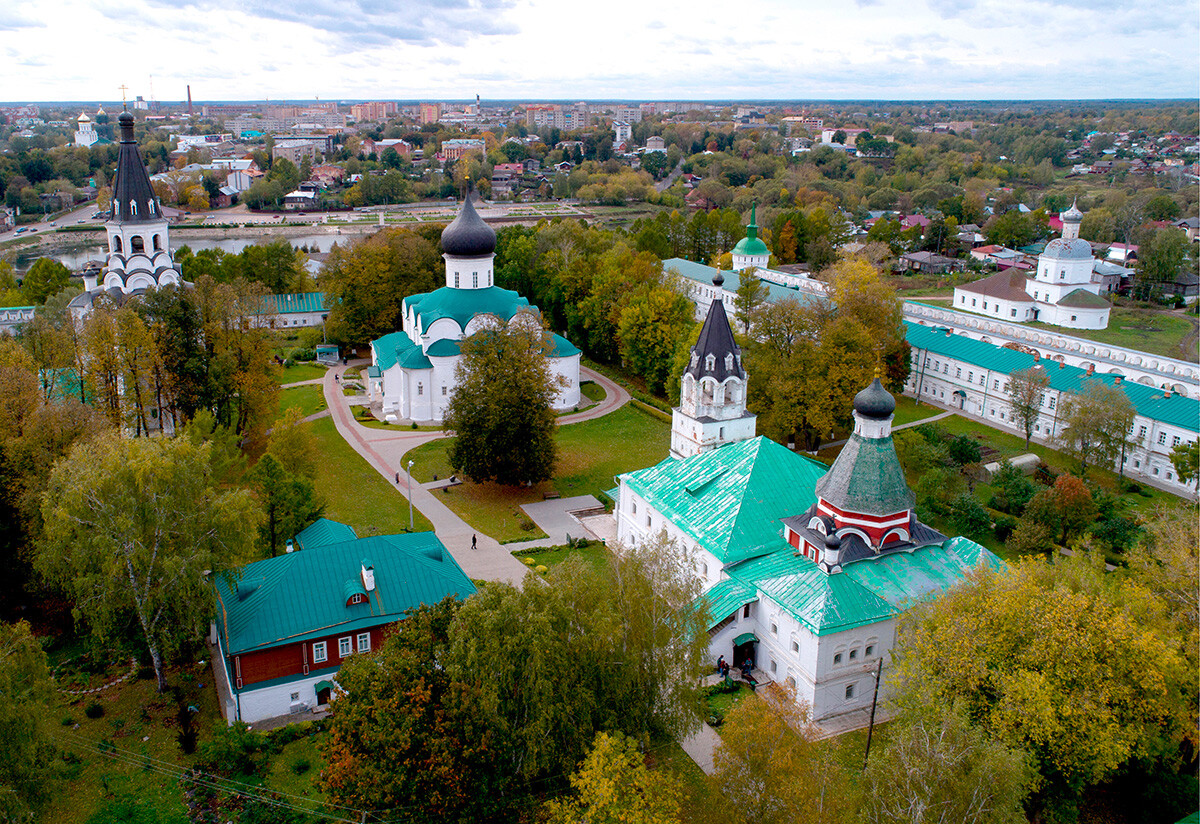 Alexandrov Sloboda now
Alexandrov Sloboda now
More than a year after the death of his son Ivan, on January 6, 1583, Tsar Ivan IV came to the Trinity-St. Sergius Lavra. His visit fell on the great Orthodox feast of Epiphany. The Tsar attended the service, and then asked two monks for a conversation: Eustathius and the elder Varsonophius. It is important that Ioann, the archimandrite of the Lavra, was not present at this conversation.
From the Lavra's documents we know that the Tsar arrived in despair. He "wept and sobbed [...] he made six bows to the ground with tears and sobbing". The Tsar asked to establish a special commemoration for his son: "to commemorate forever and ever, as long as this holy monastery stands and until the end of the age". The request was accompanied by a large monetary contribution. Tsar Ivan repented – because on the Feast of the Epiphany, according to the Gospel, John the Baptist (the heavenly patron saint of Tsar Ivan, after whom he received his name) preached repentance: "And so John the Baptist appeared in the wilderness, preaching a baptism of repentance for the forgiveness of sins" (Mark, 1-4).
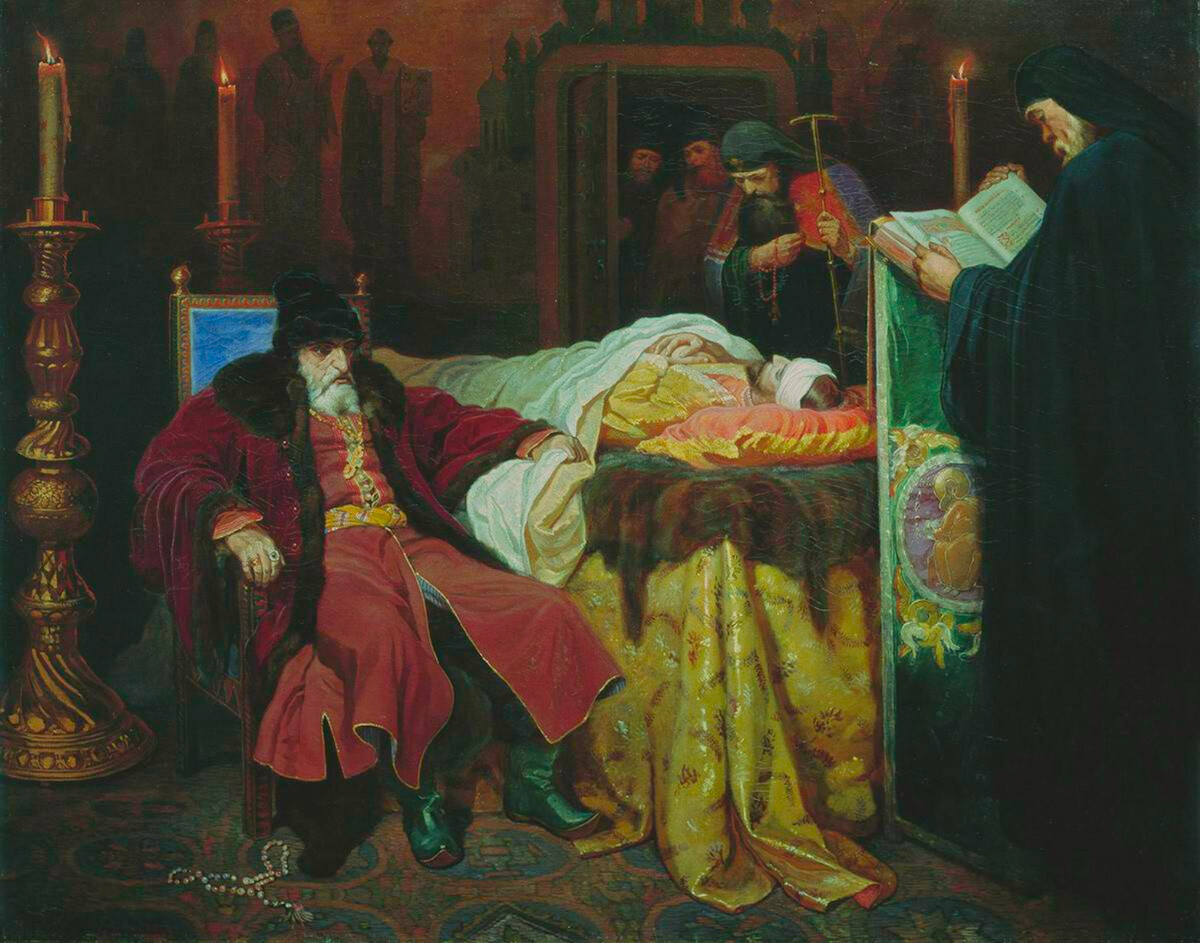 'Ivan the Terrible at his dying son's bedside,' 1864, by Vyacheslav Schwartz
'Ivan the Terrible at his dying son's bedside,' 1864, by Vyacheslav Schwartz
"Ivan the Terrible's conversation with the elders had the character of repentance, his sobs were caused by the consciousness of his guilt, and not just grief about his son", writes Russian historian Sergei Shokarev, who investigated in detail the issue of the conflict between Tsar Ivan and his son.
Strictly speaking, there is no precise confirmation or refutation of the fact that Tsar Ivan really killed his son with a staff. And the matter will never be settled definitively — only the lower jaw remains from the Tsarevich’s skull. But on the basis of written sources, says Sergei Shokarev, "we can conclude that the death of Ivan Ivanovich came as a result of illness caused by the trauma inflicted on him in anger by his father. In legal terms, the tragedy in the Alexandrov Sloboda can be qualified as causing death by negligence or manslaughter".

